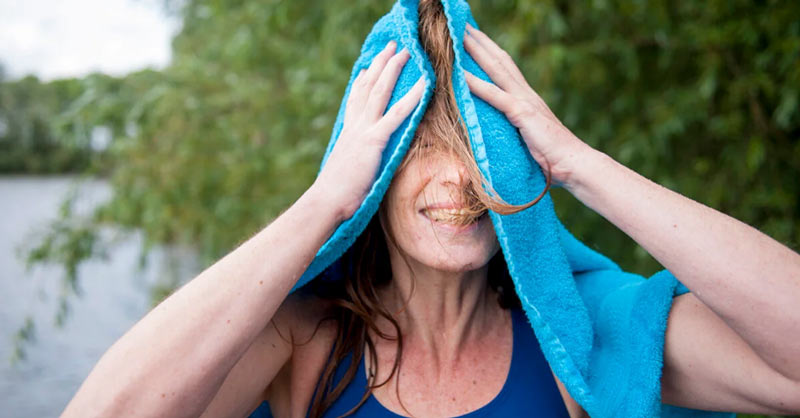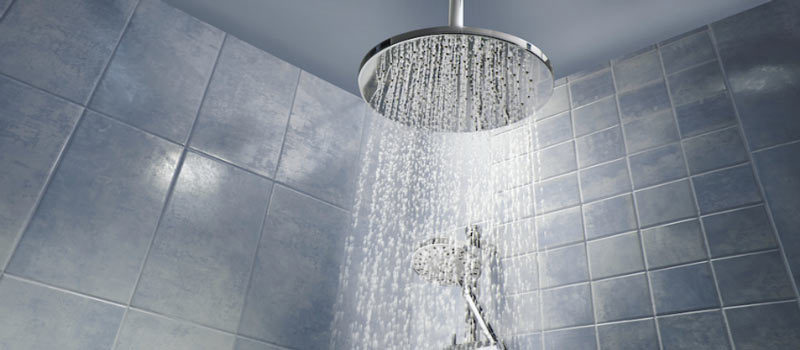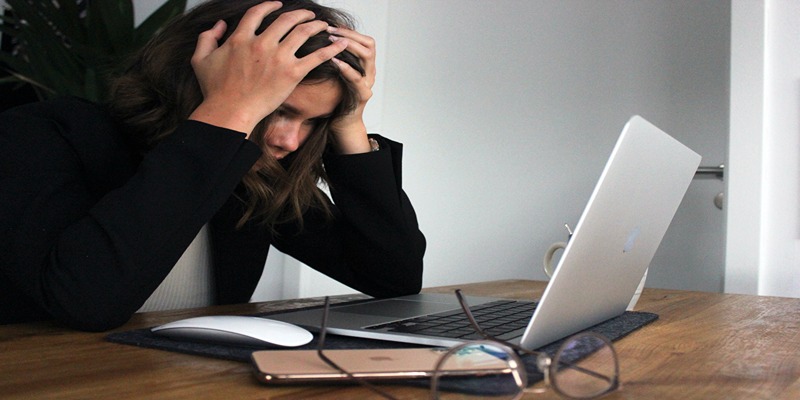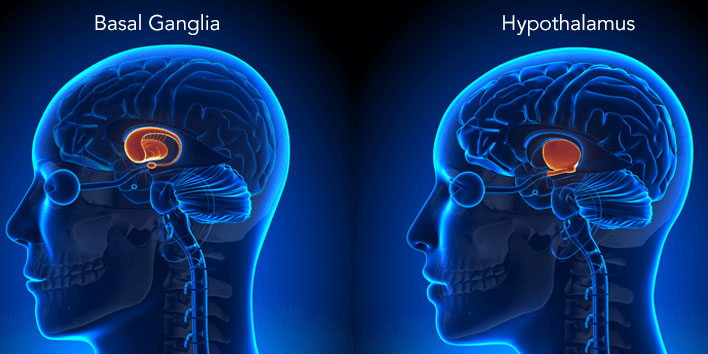Do you often reach for the calamine lotion right after a shower? You're not alone. Itching after taking a bath or shower is a common issue that plagues many people, yet there are few clear answers as to why this happens.
In this blog post, we'll explore some causes behind itchy skin after showers and baths - from temperature shock to product sensitivities - so you can make informed decisions about your skincare routine.
Whether you have acne-prone skin or dry patches, understanding why these uncomfortable sensations occur could help you take proactive steps toward achieving softer, healthier-looking skin. So let's jump in!
What does seasonal change have to do with it?
Itchy skin after showers and baths can often be attributed to changes in weather. During winter, the cold temperatures outside often mean that taking a hot shower or bath is especially appealing.
Unfortunately, this extreme temperature difference between the outside air and hot water can shock your skin, resulting in uncomfortable sensations - including itching.
The same applies during summer when the hot weather can cause us to opt for cooler showers. While this may relieve the heat, it can also lead to feeling itchy afterward. Unless your skin is used to drastic temperature changes, you probably won't find much relief from this shower or bath.
Reasons Why You Itch After Taking a Shower

Temperature Shock
Taking a hot shower can cause the skin to become heated, and when the person steps out of the shower and is exposed to cooler air temperatures outside, the skin may react with itching or burning sensations as it adjusts to sudden changes in temperature.
Hard Water
Many households get their water from wells or community systems with higher concentrations of minerals like calcium and magnesium, which can dry the skin. This water is called "hard" water and can lead to itching sensations after a shower or bath.
Chlorine
Some public pools use chlorine to keep the water clean, but too much of this chemical can irritate the skin and cause itching after swimming.
Product Sensitivities
There are many ingredients in soaps, shampoos, and body washes that can cause skin irritation or even allergic reactions. These products may contain fragrances, dyes, preservatives, and other harsh components that can cause itching after showering.
Dry Skin
People with dry skin tend to experience more itching after showering, as the water can further exacerbate the dryness. This is especially true in winter when air temperatures are cooler and less humidity.
Skin Conditions
Certain skin conditions, such as eczema and psoriasis, can cause itching after a shower or bath due to the heat and humidity of the water. It's important to consult your doctor if you suspect you have one of these skin conditions.
Irritation From Soaps
Many soaps contain harsh chemicals and fragrances that can irritate the skin, leading to itching after showering. Switching to a milder soap may help reduce these sensations.
Stress
Itching after showering can also indicate underlying stress or anxiety. Stress weakens the immune system, which can make skin more sensitive to irritants and induce itching. Taking steps to reduce stress levels may help alleviate these uncomfortable sensations.
Parasites
Itching after showering can sometimes be a sign of parasites, such as scabies or lice. If you think you may have contracted an infection, it's important to see your doctor for further evaluation and treatment.
Unknown Causes
In some cases, the cause of itching after a shower may be unknown. If you experience persistent or severe itching, seeing your doctor for further evaluation and treatment is important.
By understanding the potential causes behind itchy skin after showers and baths, you can take steps to reduce these unpleasant sensations. If your skin is particularly sensitive, consider using mild soaps and lukewarm showers to help ease any discomfort.
Possible treatments and remedies
Moisturize
A gentle moisturizer on the skin after showering can help reduce itching and prevent dryness. Choose fragrance-free lotions specifically formulated for sensitive skin or eczema, as products with strong fragrances may further irritate the skin.
Avoid Hot Showers
A hot shower may feel good at the moment, but it can leave skin dry and irritated afterward. Try to take shorter showers with lukewarm water instead.
Change Soaps and Shampoos
If your skin reacts badly to certain soaps or shampoos, try switching to products specifically formulated for sensitive skin. Look for products that are free of dyes and fragrances, as these can have a drying effect on the skin.
Use Oatmeal Baths
Oatmeal baths can be an effective way to soothe itchy skin. Add one cup of oatmeal to your bath water and soak for 15-20 minutes to relieve itching.
Drink Water
Staying hydrated and drinking plenty of water can help keep the skin moisturized and reduce itching after showering. Aim to drink eight glasses of water per day for the best results.
Use a Humidifier
If your home is particularly dry, using a humidifier in your bedroom or bathroom can help keep the air moisture levels higher and improve skin hydration.
Take Stress-Reducing Measures
Stress can play a role in itchiness, so try to relax and take time for yourself when needed. This could include yoga, meditation, or taking a few moments to read a book or listen to music. Whatever helps you de-stress, make sure to make time for it.
By understanding the possible causes behind itchy skin after showers and baths, you can take proactive steps to reduce these uncomfortable sensations. Whether you're suffering from dry patches or persistent itching, these tips may help relieve your skin.
At-Home Treatments
1. Coconut Oil
Coconut oil can be applied to the skin after showering to help soothe irritation and reduce itching. Massage a small amount of oil into your skin until it is absorbed.
2. Aloe Vera
Aloe vera gel is an effective natural remedy for itchy skin, as its anti-inflammatory properties can help reduce itching. Apply a small amount of the gel directly to the skin and massage it in until absorbed.
3. Apple Cider Vinegar:
Apple cider vinegar has great soothing properties that may help reduce itching after showering. Create a mixture of apple cider vinegar and water, then soak a towel in the solution and apply it to the skin for several minutes. This mixture can be used up to three times per week.
4. Oatmeal Paste:
Create an oatmeal paste in a food processor or blender by blending one cup of rolled oats, one teaspoon of honey, and one tablespoon of olive oil. Apply this paste directly to itchy areas after showering and leave it on for 15-20 minutes before rinsing it off.
FAQs
Why am I so itchy after a shower?
Itching after taking a shower can be due to a variety of causes. Temperature shock, product sensitivity, and even skin conditions such as eczema or psoriasis can all contribute to an itchy feeling post-shower. It's best to check in with your doctor if you're experiencing persistent itchiness - they may recommend specific treatments depending on the cause.
Why might I be experiencing temperature shock?
Temperature shock can occur when your body is exposed to sudden changes in temperature, such as when you move from a hot shower to cooler air. This can cause your skin to react by becoming temporarily itchy and red.
Can long showers cause itchy skin?
Yes, they can. Prolonged exposure to hot water can strip your skin of its natural oils and cause it to become dry and itchy. If you take long showers, it's important to use a moisturizing soap and finish with cold water to help keep your skin hydrated and soothe any irritation caused by temperature shock.
Conclusion
Itching after a bath or shower doesn't have to be an unavoidable part of your daily routine. By understanding the potential causes - from temperature shock to product sensitivities - you can proactively avoid skin irritation and keep your skin looking and feeling its best.
If you still struggle with itchy skin despite your best efforts, don't hesitate to contact a dermatologist for personalized advice. They may provide additional insight or suggest an effective treatment plan.





